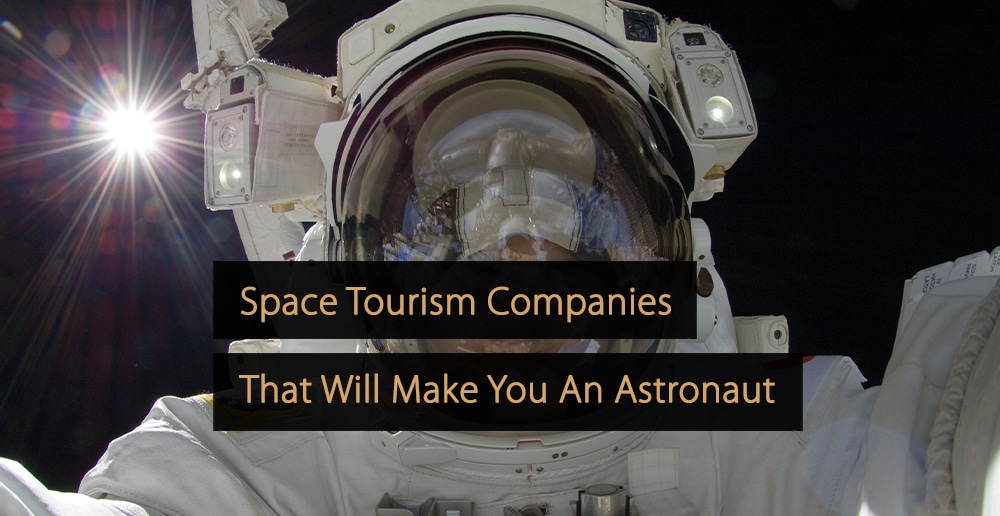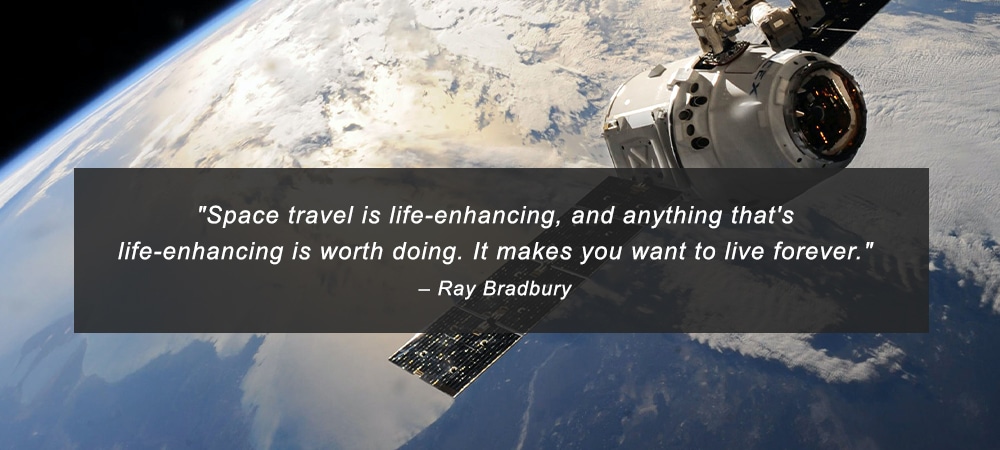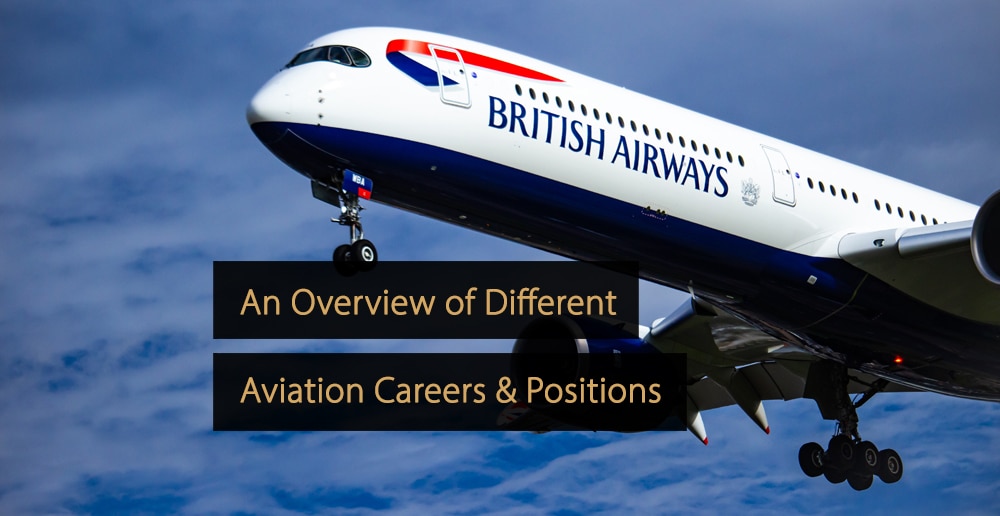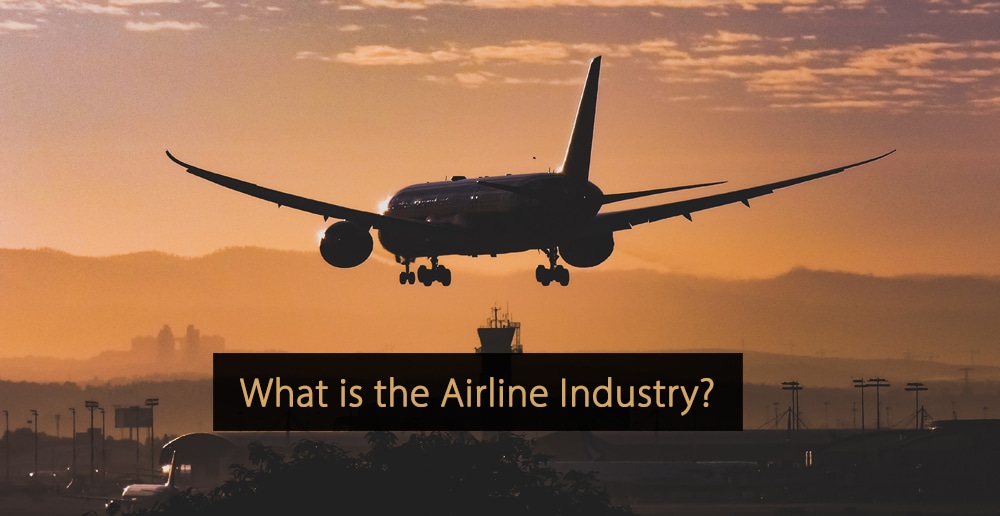The concept of space tourism is one of the most exciting emerging features of the wider tourism industry, and companies like Virgin Galactic and SpaceX are already making waves by outlining plans to deliver various forms of commercial spaceflight in the near future. In this article, you will learn more about the space tourism industry, its history, the companies most likely to deliver on it, and what the future has in store.
Table of Contents:
- What Is Space Tourism?
- A Brief History of Space Tourism
- Types of Space Tourism
- 7 Space Tourism Companies That Will Make You An Astronaut
- Space Tourism Companies That Didn’t Make It
- List of Aerospace and Space Tourism Companies
- Live Video: Watch the Earth From Nasa Space Station
- How to Book a Ticket for a Space Flight
- How to Book Your Space Hotel
- Space Tourism and the Wider Space Industry
- Who Was the First Space Tourist?
What Is Space Tourism?
Put simply, space tourism refers to traveling into space for recreational purposes. It is sometimes referred to as citizen space exploration, personal spaceflight, or commercial human spaceflight, and it covers spaceflights that are sub-orbital, orbital, and even beyond Earth’s orbit.
According to the Space Tourism Market Size, Share & Trends Analysis Research Report by Grand View Research, the global space tourism market size was valued at USD 851.4 million in 2023. Some definitions also include hypothetical future spaceflights that are undertaken for business purposes.
A Brief History of Space Tourism
While the concept of space tourism still sounds futuristic, it already has an established history. So far, however, the Russian Space Agency is the only company that has successfully facilitated orbital space tourism. This occurred in the early 2000s when seven space tourists were taken into space.
The Russian Space Agency ceased its space tourism operations in 2010. Since then, several private enterprises have pursued space travel, resulting in various proposals in this area.
Types of Space Tourism
The following table provides an informative overview of various types of space tourism, offering travelers the opportunity to venture beyond Earth’s boundaries.
7 Space Tourism Companies That Will Make You An Astronaut
The concept of space tourism is growing in popularity all the time, and there are a growing number of businesses engaging in activities within the space tourism industry. For those hoping to one day visit space as a private astronaut, the following companies may offer the best chance of achieving that dream.
1. Virgin Galactic
Part of the wider Virgin Group, the Virgin Galactic space tourism company aims to provide regular suborbital spaceflights for paying customers. Its current spaceplane, VSS Unity, entered outer space in December 2018 as part of its testing process, bringing the possibility of regular commercial spaceflights closer.
The company already has an extensive waiting list of people wishing to become space tourists, with an initial deposit of £200,000 required to secure a place on this list. However, Virgin Galactic was not entirely without issues, including multiple delays and the in-flight loss of its VSS Enterprise spaceplane in 2014.
Video: Space Tourism Company Virgin Galactic In Space For The Second Time
You can read more detailed information about Virgin Galactic in the article “Virgin Galactic: Information About Virgin Space Flights”.
2. SpaceX
SpaceX is already hugely experienced in launching space-bound flights, and the company also hopes to get on board the space tourism bandwagon. However, unlike most other companies in this field, they prioritize lunar tourism and other forms of space travel extending beyond Earth’s orbit.
In 2017, the company’s founder, Elon Musk, announced his intentions to send two paying customers on a trip around the moon on an inaugural lunar tourism mission. The mission was initially planned for 2018 but has since been delayed. SpaceX has not yet revealed any pricing strategy or waiting list for lunar trips.
Video: Space Tourism Company SpaceX Interplanetary Transport System
You can read more detailed information about SpaceX in the article “SpaceX Information: Rockets, Spacecrafts and Spaceflights”.
3. Blue Origin
To date, Blue Origin has been Virgin Galactic’s main competitor in terms of sub-orbital space travel tourism. However, their offering is based around a more traditional rocket known as the New Shepard, which takes off and lands vertically, and their objective is to build towards orbital spaceflight.
As with Virgin Galactic, the space tourism company has performed several test flights and plans to put paying passengers into space soon. However, unlike Virgin Galactic, they have not started taking money for tickets. Their plans involve placing up to six passengers on each flight, with room to perform weightless somersaults.
Video: Space Tourism Company Blue Origin – Millions of People Living and Working in Space
More detailed information about Blue Origin, you can read in the article “Blue Origin: Information About Blue Origin Space Flights”.
4. Orion Span
Finally, Orion Span is a space travel company in the United States, which announced plans for a private commercial space station, called the Aurora Space Station. This would be placed in low Earth orbit and would effectively function as a space hotel, which would be able to host up to six space tourists at a time.
While the plans are still in the provisional stages, the company has already sold out several months of hotel reservations. The total cost of a space hotel reservation is more than £7 million. At present, Orion Span says it is hoping to host its first paying guests at the Aurora Space Station in the year 2022.
Video: Space Tourism Company Orion Span, First Space Hotel
You can read more detailed information about Origin Span in the article “Orion Span: Information About Orion Span Space Hotel”.
5. Boeing
The Boeing Company emerged as a major player in the space tourism industry when it signed an agreement with NASA as part of its Commercial Crew Development program. This program was designed to increase involvement from private sector companies in producing crew vehicles to be launched into orbit.
As part of the agreement, Boeing started developing a crew capsule called the Boeing CST-100 Starliner. Crucially, the company’s contract with NASA allows them to sell seats to space tourists, with the idea being that at least one space tourist would participate in each future space mission.
Video: Ride in Boeing Starliner atop a ULA Atlas V in this 360 Launch Experience
6. Space Adventures
Established in 1998, Space Adventures, Inc. is a space tourism company based in Vienna, Virginia, in the United States. Eric C. Anderson founded the company and has already established a list of clients who have enjoyed orbital spaceflights, zero-gravity flights, and astronaut training programs.
Space Adventures offers launch tours and spacewalk training activities, many of which take place in Russia. They have taken bookings for planned future sub-orbital flights and a mission that intends to orbit the Moon. Space Adventures also seeks people interested in future International Space Station (ISS) trips.
Video: Space Adventures – a view like this
7. Zero 2 Infinity
Zero 2 Infinity, sometimes stylized as 0II∞, is an aerospace company based in Barcelona, Spain. Established in 2009, the company is notable for its climate-friendly approach, and its launch systems utilize balloon technology to reduce the carbon emissions typically associated with space tourism.
In addition to carrying out scientific testing and meteorology activities, the company intends to use a balloon-borne zero-emission craft to send space tourists into near space. Current plans will enable the company to send four passengers and two pilots for six crew members up into near space on each craft.
Video: A Near Space Experience – Bloon by Zero 2 Infinity
Space Tourism Companies That Didn’t Make It
While the five companies above all have interesting proposals – and most have produced promising results through early testing – it is worth remembering that these are not the only companies that have made such plans. Indeed, below, you will find out about several space tourism companies that did not achieve their goals.
1. Galactic Suite Space Resort
Founded in 2007, the Galactic Suite Space Resort was originally devised by the Barcelona-based space tourism company Galactic Suite Design. Much like the Aurora Space Station project from Orion Span, it was intended to be a space station that would function as a hotel for space tourists.
The company initially set a goal of 2012 for the first launch, but that was met with widespread skepticism from within the space travel industry. Ultimately, the company failed even to acquire a rocket system capable of transporting passengers, and the project slowly faded away before being permanently canceled.
Video: Space Tourism Company Galactic Suite space resort GSSR 3.0
2. The Golden Spike Company
Established in 2010, the Golden Spike Company was a space tourism company set up to provide commercial space travel to the moon’s surface. It originally made the extent of these ambitions known at a press conference in 2012, and the company even had connections with various former NASA employees.
Response to its early announcements was mixed, with some sources claiming they were credible, while others criticized their unrealistic budget estimates. Ultimately, the company failed to gain traction and ceased all serious operations in 2013. The main Golden Spike website was then taken offline two years later.
Video: Space Tourism Company Golden Spike Announcement video
3. XCOR Aerospace
Finally, XCOR Aerospace was one of the first space tourism companies to gain widespread media attention. It had several projects and proposals, but its most famous was the proposed Lynx spacecraft, announced in 2008. This was to be a horizontal take-off spacecraft, which was hoped to be capable of sub-orbital spaceflights.
The company initially expected to roll out a spacecraft prototype in 2015 but ran into financial difficulties and began laying off staff the following year. Prototype development of the Lynx vehicle was never completed, and XCOR Aerospace eventually filed for bankruptcy in 2017.
Video: Space Tourism Company XCOR Aerospace
List of Aerospace and Space Tourism Companies
The space tourism industry is gathering pace fast, as many organizations seek to deliver on the aim of putting paying customers into space. Moreover, several aerospace companies are either exploring this option or helping to develop the technology that will enable space tourism companies to operate.
Read “Aerospace Companies: List of Aircraft and Spacecraft Manufacturers” for a more comprehensive view of the various aerospace companies, including those involved in spacecraft manufacturing and space tourism.
How Will Space Tourism Look in the Future?
In the short term, space travel tourism will continue to grow in popularity, and companies like Virgin Galactic and Blue Origin will deliver sub-orbital spaceflight for paying customers. Meanwhile, several enterprises will pursue orbital spaceflight, with Boeing among them.
However, interest in the space tourism industry will likely take off when space tourism extends beyond Earth orbit, especially if lunar missions become financially and logistically feasible. That said, it is worth pointing out that space travel will likely remain extremely expensive for the foreseeable future. It is also physically demanding, meaning it will only be available to people who pass fitness tests and undergo training programs in preparation for their flight.
According to the Forecast Revenue Of Orbital Space Travel And Tourism Worldwide Research Report by Statista, the estimated revenue of the orbital space tourism and travel market is forecast to reach roughly $555 million by 2030.
Live Video: Watch the Earth From NASA Space Station
For most people, space tourism is still out of reach. Fortunately, you can already admire the Earth from space through the live feeds from NASA.
Video: NASA ISS Live Stream – Earth From Space
Video: Earth From Space Seen From The ISS
How to Book a Ticket for a Space Flight
As space tourism becomes a more realistic prospect, there is growing anticipation among those who wish to enjoy the trip of a lifetime. So how close are we to making the trip into outer space, and what is the process like for booking a commercial space flight?
Read our article, “Space Flight: How to Book a Ticket into Space”, for more information on offerings from SpaceX, Virgin Galactic, Blue Origin, and Boeing, along with information on how you can actually book your seat on a spacecraft.
How to Book Your Space Hotel
The concept of space tourism opens up the possibility of not only traveling into space but staying there. Already, there are a number of proposals for space hotels and accommodations for tourists, including Orion Span’s luxury space hotel and even the International Space Station (ISS), which the first space tourist visited.
Check out “Space Hotel: How to Book a Hotel in Space”, where you can obtain more details about the various proposals for overnight stays in space, along with important info on how to book your stay.
Space Tourism and the Wider Space Industry
Space tourism is a fast-growing area of the wider space industry, and it can be advantageous for those interested in visiting space to understand the industry as a whole. After all, the tourism opportunities offered by aerospace companies are being provided on the back of enormous achievements in the 20th century and early 21st century.
To learn more about the space industry, its history, the role of space tourism, and the main companies operating in the sector, read “Space Industry: The No. 1 Guide into Space!”
Who Was the First Space Tourist?
Proposals from companies like SpaceX, Virgin Galactic, and Orion Span have taken the idea of space tourism to a whole new level. However, the first space tourist traveled into space in 2001, when American Dennis Tito paid the Russian Space Agency millions of dollars.
You can learn much more about the story of Dennis Tito’s trip to space and the origins of space tourism by reading the “Space Tourist: Who Was the First Tourist in Space?” article.
Space Tourism FAQs
Over the course of the next decade, space tourism is likely to become a reality, thanks to companies like Virgin Galactic, SpaceX, and Blue Origin, which are all set to offer their ways for paying customers to travel into space. That, in turn, could eventually lead to further developments, such as lunar tourism and even Mars tourism.
Want to Learn More About Related Industries?
The hospitality industry is part of the travel industry, and the hotel industry is part of the hospitality industry. All these industries have in common is that they are large service industries worldwide and are increasingly important in the modern age. But what is the difference between the travel and tourism industry? And what are all hospitality sectors within the hospitality industry? In the following articles, you learn more about related industries.
- Travel Industry; An Overview of One of the Largest Service Industries
- Hotel Industry; An Overview of All Different Types of Accommodations
- Hospitality Industry; Everything You Need to Know About Hospitality
- Tourism Industry; Everything You Need to Know About Tourism
- What is the Difference Between the Travel and Tourism Industry?
- Airline Industry: All You Need to Know About The Airline Sector
- Everything You Need to Know About the Cruise Industry
More Tips to Grow Your Business
Revfine.com is the leading knowledge platform for the hospitality and travel industry. Professionals use our insights, strategies, and actionable tips to get inspired, optimize revenue, innovate processes, and improve customer experience.Explore expert advice on management, marketing, revenue management, operations, software, and technology in our dedicated Hotel, Hospitality, and Travel & Tourism categories.
This article is written by:
Hi, I am Martijn Barten, founder of Revfine.com. With 20 years of experience in the hospitality industry, I specialize in optimizing revenue by combining revenue management with marketing strategies. I have successfully developed, implemented, and managed revenue management and marketing strategies for individual properties and multi-property portfolios.









Let’s go to the Moon :)